Interviewed by AyiboPost, Dominicans, Haitians, and Dominicans of Haitian descent share nuanced perspectives on these elections dominated by relations between the DR and Haiti
The 56-year-old economist and businessman, Luis Abinader, has just been elected for a second 4-year term as president of the Dominican Republic during the general elections on May 19, 2024.

A PRM (Partido Revolucionario Moderno) supporter gestures « 4 more years » with one hand at the celebration party following the announcement of President Luis Abinader’s victory in Santo Domingo on May 19, 2024.
Interviewed by AyiboPost, Dominicans, Haitians, and Dominicans of Haitian descent share nuanced views on these elections dominated by relations between the DR and Haiti.
Read also: Les choix électoraux en RD n’enchantent pas les Dominicains d’ascendance haïtienne
“It wasn’t easy to decide who to vote for,” Ghislaine Ruiz told AyiboPost.
Born in the Dominican Republic to Haitian parents, Ruiz lives in Canutillo, a rural area less affected by anti-Haitian migration policies. Canutillo is located in the San Pedro de Macoris region, 52 km from the capital Santo Domingo.
Returning from the polls when interviewed by AyiboPost, she complains about the difficult living conditions for people of Haitian descent in the Dominican Republic over the past 4 years.
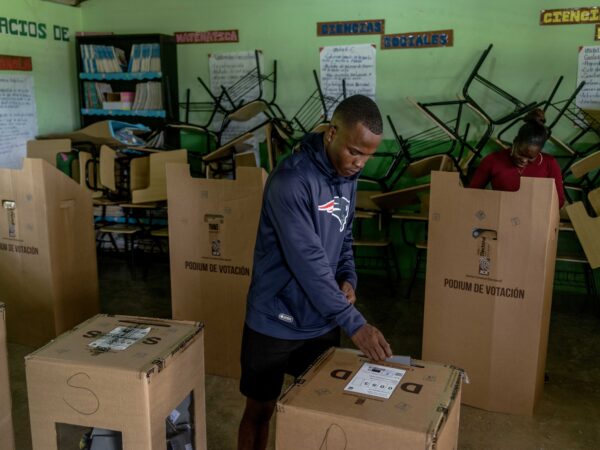
A Dominican voter of Haitian ancestry exercising his right to vote at the Centro educativo la Higuera/Santa a Lucia/Seibo on May 19, 2024.
The fight against corruption, economic reform and migration issues were among the highlights of Luis Abinader’s first administration, between 2020 and 2024.
In 2021, the Dominican Republic experienced one of the strongest post-Covid economic recoveries in the world, with growth of more than 12%.
That same year, the country posted an unemployment rate of 7.7%, a literacy rate of 93% for a GDP per capita of USD$8,986 compared to USD$1,694.1 for Haiti.
Investments in tourism, which represents 28% of GDP, have pushed this sector towards exponential development.
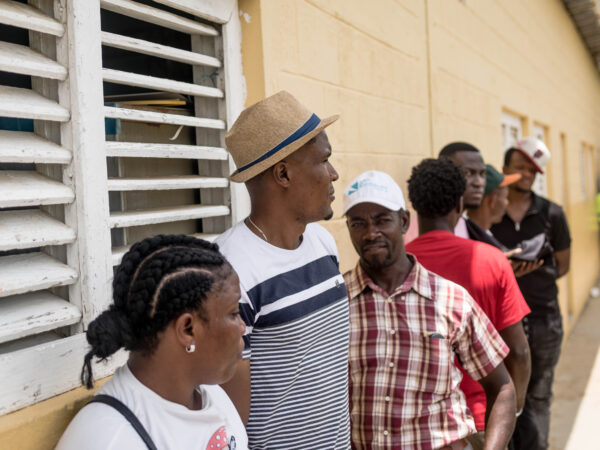
A line of Dominican voters in front of the La Higuera office waiting for their turn to exercise their right to vote.
On several occasions over the past 4 years, the Haitian question has come back to the table.
The Abinader Administration adopted drastic measures, some openly discriminatory, against undocumented Haitians.
More than 185,000 people were deported from the Dominican Republic in 2023, according to the Support Group for Repatriates and Refugees (GARR). For the same period, deportations from the United States concerned fewer than 1,000 individuals.
Read also: Les déportations de Luis Abinader entravent l’image et l’économie dominicaines
Construction work on a 190 km long wall on the border between the two countries was launched in 2022.
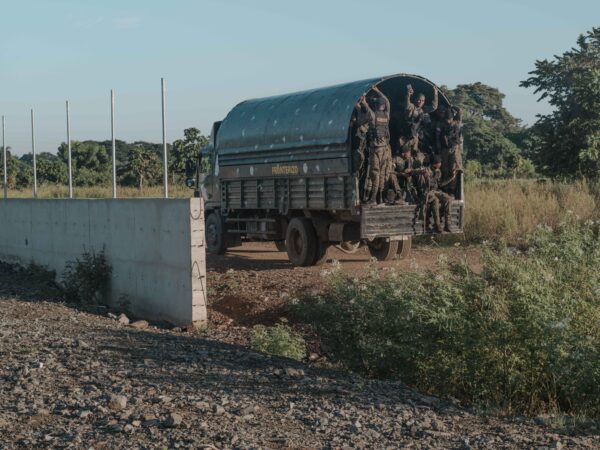
Dominican soldiers in a truck coming to relieve other soldiers on the Dominican-Haitian border in the Pittobert area, a few meters in front of the Haitian canal being built. (September 19, 2023)
In a speech to the United Nations General Assembly in 2023, the Dominican President called for an international intervention to ensure stability in Haiti.
For his second term, Abinader is likely to remain on course, which some observers consider anti-Haitian.
His campaign centered on the slogan “Change continues.”
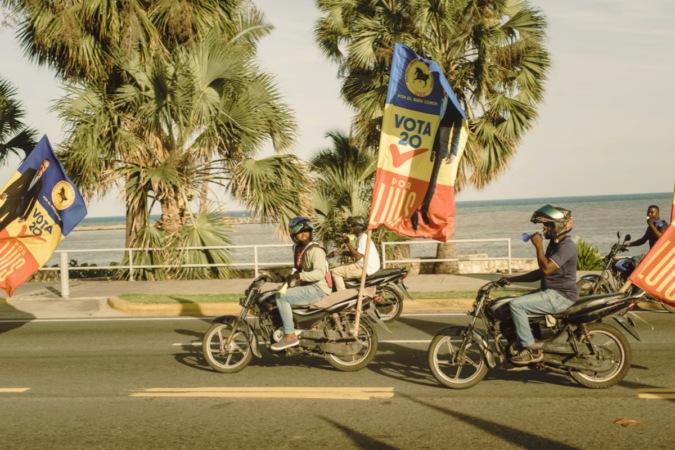
Malecon de Santo Domingo (Sunday, May 13, 2024) Day of the electoral caravan in several provinces of the country for the Presidential Party, the PRM. | © Pierre Michel Jean
Vilson Jean is one of the 500,000 Haitians living in the Dominican Republic.
The young man lives in Puerto Plata, in the north of the country, where he has worked as an interpreter for tourists since 2018.
He and his friends were unable to vote in the last elections because they are still in an irregular situation. And even if they had to, it would have been difficult to choose, he said.
Because for Jean, none of the major candidates has demonstrated a desire to defend the cause of Haitians.
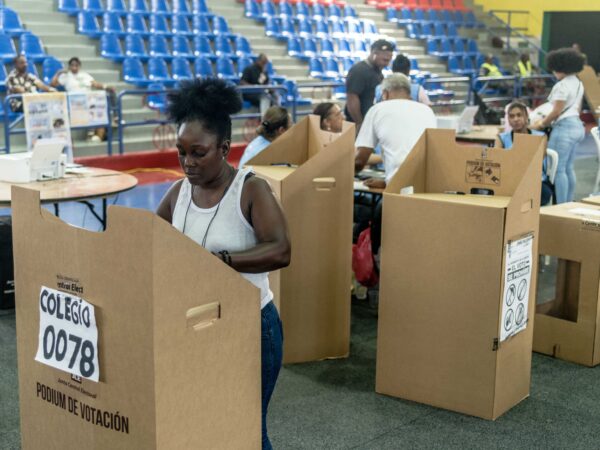
A Dominican voter in a voting booth at the voting center created for the occasion at the San Carlos Club/Districto Nacional/9 polling stations + 1 station for people with disabilities: 4,270 voters expected.
According to observers, the main political parties in the DR are putting forward proposals deemed anti-Haitian.
But for Jean, the best alternative would be for Haiti to regain its stability and for him and his friends to be able to return to work in their country.
“I’m tired of staying in a country where I don’t have a voice that counts,” he told AyiboPost.
In his interview this Monday called “La Semanal,” the Dominican president announced the start of a process of rapprochement with the opposition leaders from the main parties.
“This process should pave the way for a government administration based on agreements and consensus,” the director of the Dominican media, Fotuto Germàn Reyes explains to AyiboPost.
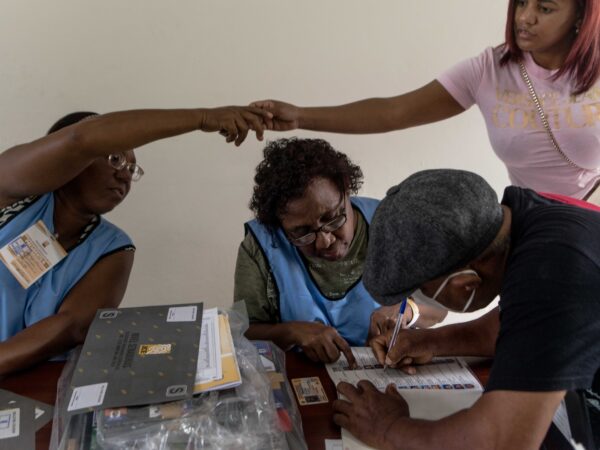
Dominican voters signing the electoral list after casting their ballot. “Casa de la Juventud: 520 voters expected/Calle Jacinto de Laconcha Santo Domingo Este.
For the coming years, the journalist hopes for an improvement in bilateral relations between Haiti and the DR. Not only to resolve migration issues, but also for economic exchanges and a “more equitable use of border resources.”
Read also : L’exploitation d’une mine d’or à la frontière entre Haïti et la RD fait peur
In 2023, Haiti’s resumption of the construction of an irrigation canal on the Massacre River on the Haitian-Dominican border reignited tensions on the Dominican side.
To signal his disapproval, on September 15, the Dominican president ordered the closure of his main borders with Haiti.
The DR already has more than 10 structures on the river. Haiti is only building its first, while 3 of its rivers flow into the Massacre River.
“The number of irrigation works on the waters of the Massacre River should approach equality,” comments Reyes.
Watch this AyiboPost interview with Doctor of Law Maismy-Mary Fleurant on the legality of the construction of a canal connecting to the Massacre River:
Border markets are not truly binational, observers say. “There are 18 of them and they are all on the Dominican side of the border,” Reyes notes.
Structural initiatives must be undertaken to mitigate violence against Haitians across the border, according to specialists.
“Education on the history of the two nations should be prioritized, based on a different approach moving away from racist and anti-Haitian sophisms,” concludes Reyes to AyiboPost, adding the need for international arbitration for the resolution of bilateral conflicts.
Read also: «Kanal la Pap Kanpe», un des plus importants mouvements de solidarité populaire d’Haïti
On Sunday, Dominican voters around the world voted for a two-headed executive (president and vice-president), 178 deputies for the 32 electoral districts, 5 national deputies and 7 deputies representing Dominicans in the diaspora.
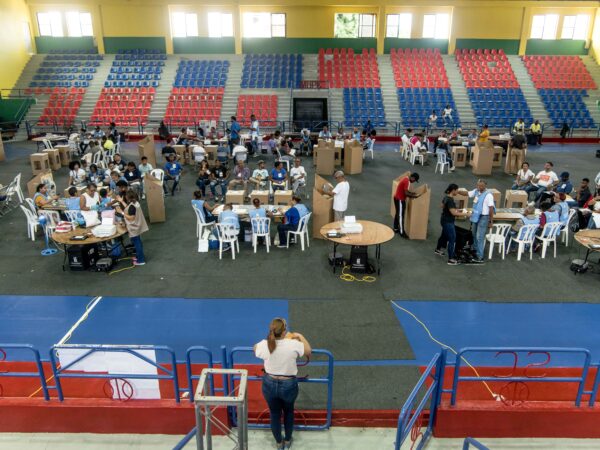
Dominican voters in the queue to vote at the center created for the occasion at the San Carlos Club/Districto Nacional/9 polling stations + 1 station for people with disabilities: 4,270 voters expected.
According to the “Junta Central Electoral,” the Dominican electoral authority, 8,105,151 Dominicans were expected at the polls to elect a total of 243 representatives.
The “Central Electoral Junta” mobilized 55,000 military electoral police to secure the voting process.
The presidential party, represented by Luis Abinader, obtained the majority of votes cast.
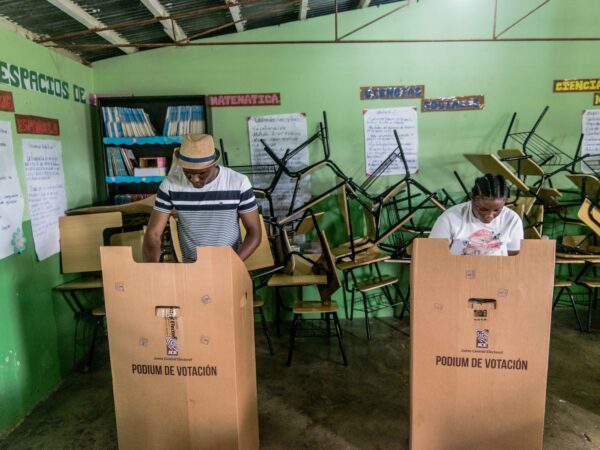
Voters cast their ballots at the Dieldito Chilian center.
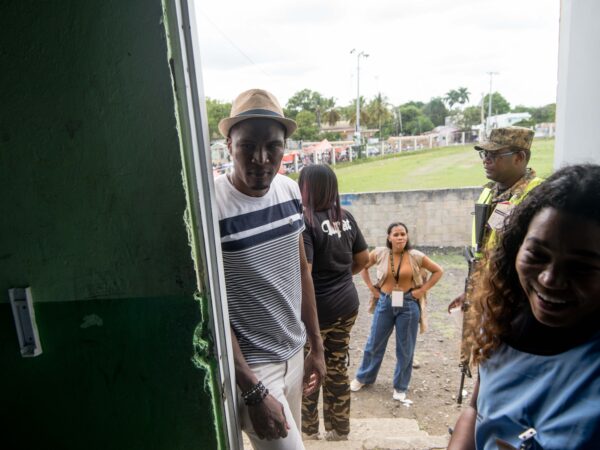
Voters wait for their turn to vote at the Dieldito Chilian center.
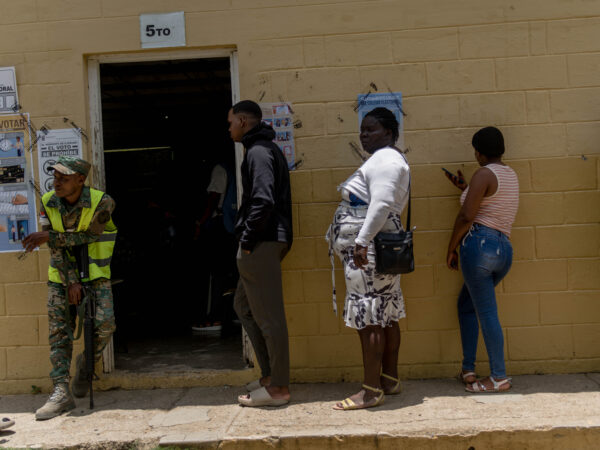
A line of Dominican voters in front of the La Higuera office waiting for their turn to vote.
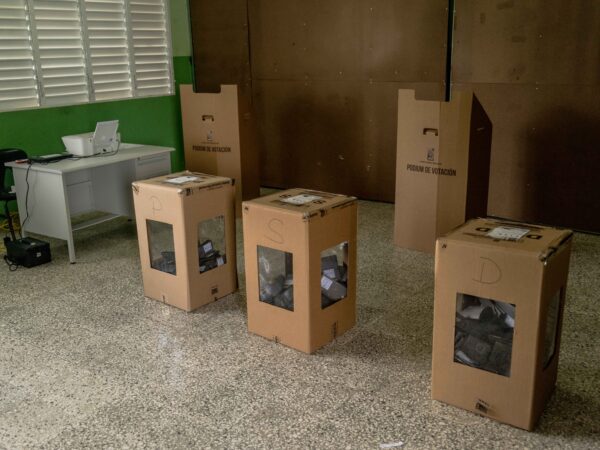
A polling station empty of voters in the afternoon of May 19, 2024. Escuela El Rosario, Santa Lucia/Seïbo. The abstention rate of Dominican voters in Sunday’s election according to the Junta Central Electoral would be close to 46%.
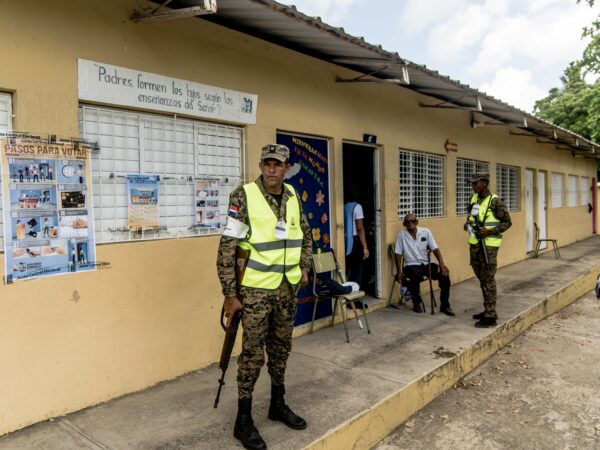
Two soldiers guarding the entrance to this polling station created for the occasion at the Escuela Professor Pilar Rondon/Zona Les algarrobos/Hato Del Mayor (2 stations in the polling center: 889 voters expected).
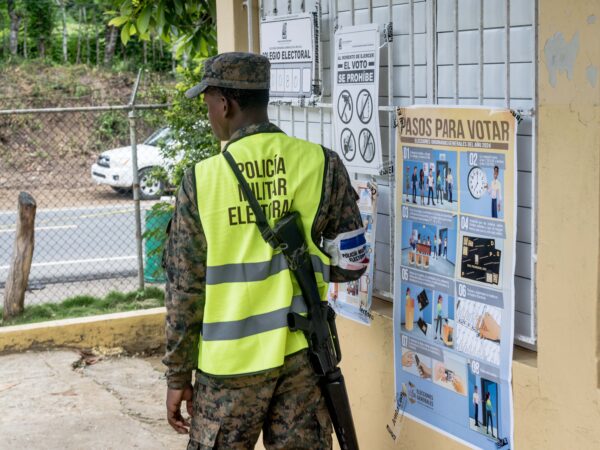
A soldier securing a polling station at Escuela Professor Pilar Rondon/Zona Les algarrobos/Hato Del Mayor (2 stations in the voting center: 889 voters expected).
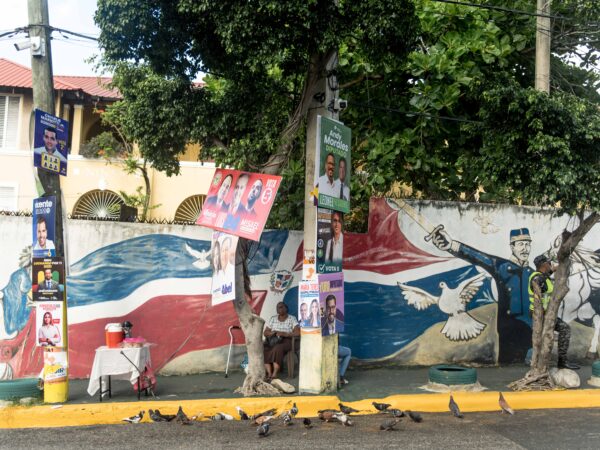
Wild posting of electoral advertisements near a polling station at the exit of the Colonial/Districto Nacional zone.
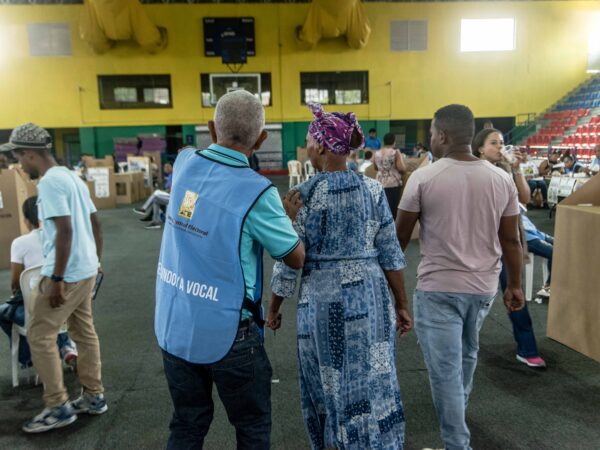
An officer from the San Carlos voting center accompanies a Dominican voter who clearly needs assistance. Voting center created for the occasion in the gymnasium of the San Carlos Club/Districto Nacional/ 9 polling stations + 1 office for people with disabilities: 4,270 voters expected.
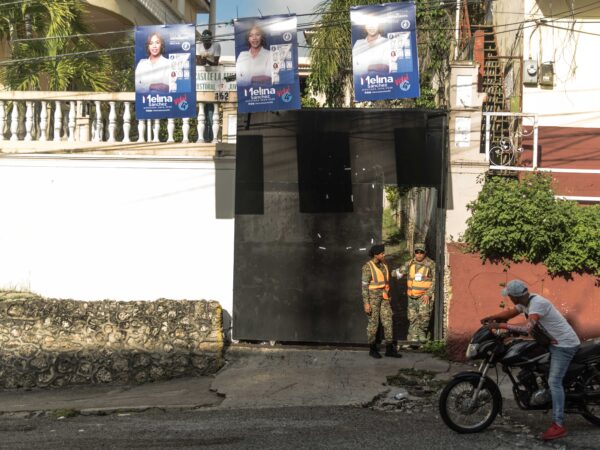
Two military security guards at the entrance to the voting center located at “Casa de la Juventud”/Calle Jacinto de Laconcha Santo Domingo Este.
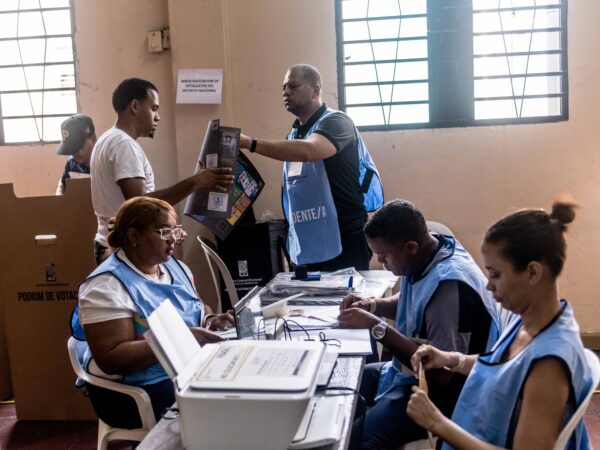
The president of a polling station gives a Dominican voter his 3 ballots before heading to the voting booth. (Location: Voting Center of the Associación de Detallistas de Provisiones del Distrito Nacional: 1,103 voters expected).
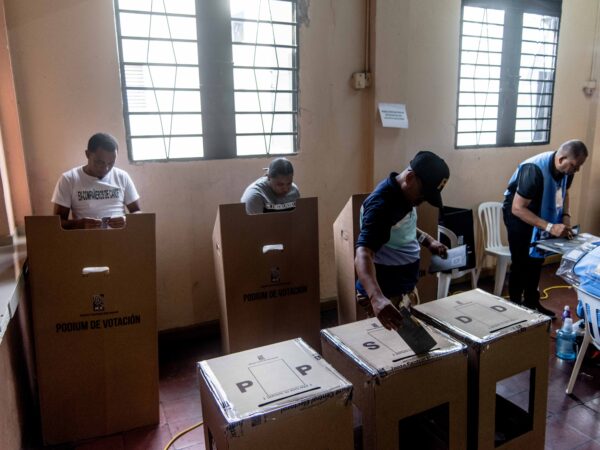
Dominican voters casting a ballot into the senatorial ballot box.
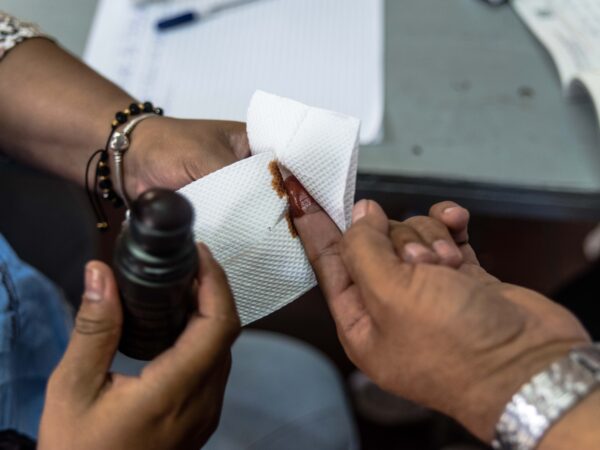
A polling station officer wipes the finger of a Dominican voter marked with indelible ink after the latter casts his vote. (Location: Voting Center of the Associación de Detallistas de Provisiones del Distrito Nacional: 1,103 voters expected).
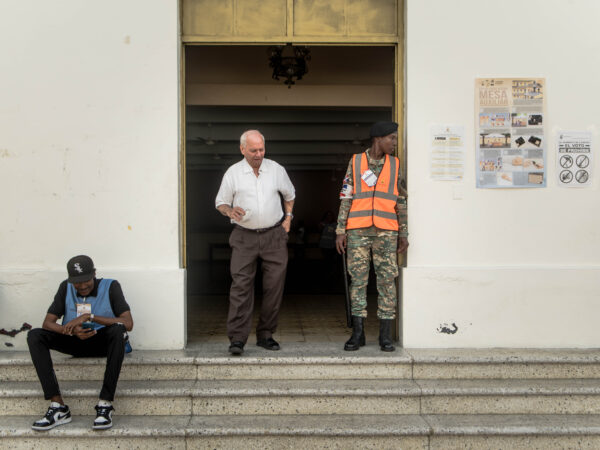
A Dominican voter after casting his vote leaves the center located on the premises of the Associación de Detallistas de Provisiones del Distrito Nacional/Santo Domingo Este.
By Wethzer Piercin & Pierre Michel Jean
Cover image: President Luis Abinader and his family at the PRM (Partido Revolucionario Moderno) Headquarters after his victory speech.
The images are from Pierre Michel Jean, AyiboPost special correspondent in the Dominican Republic to cover the elections of May 19, 2024.
Keep in touch with AyiboPost via:
► Our channel Telegram : Click here
► Our Channel WhatsApp : Click here
► Our Community WhatsApp : Click here

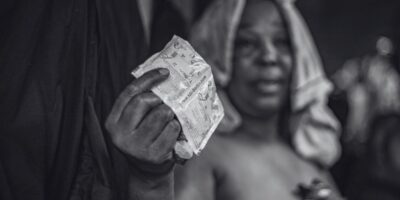





Comments